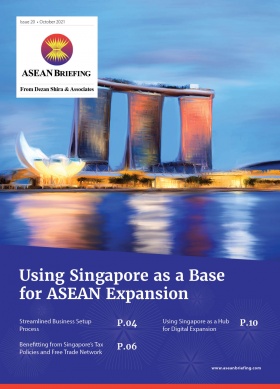Singapore Introduces New Healthcare Reform Plan
Singapore has recently announced a new healthcare reform plan that will shift the country’s healthcare strategy towards preventive care. The program is called Healthier SG and aims to provide a family physician and one health plan for every resident. The hope is that family doctors will develop strong relationships with their patients and play a more prominent role in preventive healthcare.
The change in strategy comes because Singapore is fast becoming an aging society, with one in four residents aged 65 and above by 2030. Further, the country has also seen a steady increase in chronic disease cases such as hypertension and obesity.
On October 5, 2022, Singapore’s Ministry of Health introduced a new initiative that is set to transform and reform the country’s healthcare sector. Named Healthier SG, the new strategy focuses heavily on preventive care which shifts from the health system’s current reactive and illness-focused orientation.
The ambitious program aims to provide a family physician and one health plan for every resident — starting with those aged 60 and above in 2023 — as well as offering cheaper drugs to treat chronic diseases. The government will spend more than S$1 billion (US$700 million) over the next four years on set-up costs such as new IT systems and new GP clinics and an estimated S$400 million (US$280 million) on recurring costs such as for annual health screening for residents.
Only six percent of Singapore’s healthcare budget is spent on preventive care annually. Through Healthier SG, the government hopes to double this spending.
Why Healthier SG?
The government has cited several factors as to why they want to reform the healthcare sector and focus more on preventive care.
An aging society
Today, one in six Singaporeans is aged 65 and above, and by 2030, this portion will increase to one in four. As such, an aging society requires increasing healthcare services, especially for elderly care.
Chronic diseases
Although Singapore has achieved good health outcomes since its independence (for instance life expectancy is higher than in the UK, US, Switzerland, Australia, and New Zealand), there is a rise in cases related to chronic diseases, ranging from hypertension to obesity, driven by lifestyle changes.
How will Healthier SG work?
Healthier SG will comprise 5 key strategies.
1.) Mobilizing Singapore’s network of family doctors
The government plans to grow the number of family doctors with a focus on preventive healthcare. Each resident will choose their family doctor or clinic. The hope is that family doctors will develop strong relationships with their patients and play a bigger role in preventive healthcare.
2.) Developing healthcare plans
On the first visit to a family doctor, the doctor will develop a healthcare plan based on an individual’s health condition. The health plan will include adjustments to lifestyles, regular health screenings, and any recommended vaccinations.
Further, the family doctor will also have brief annual check-ins with their enrolled resident to discuss the health plan and make any necessary adjustments. The annual check-ups will be free of charge for residents.
3.) Activating community partners
Residents will be connected to community partners such as Sport Singapore, National Parks Board, Integrated Care, and the People’s Association, who run various activities and programs like workout regimes, ball games, and community gardening.
4.) National employment program
Each resident will be invited to enroll in a primary healthcare clinic of their choice with the ultimate goal to have one family doctor for one resident. This will start in the second half of 2023 with those aged 60 and above.
The national enrollment program will be managed by three healthcare clusters, National Healthcare Group (NHG), National University Health System (NUHS), and SingHealth (SHS). Each cluster manages approximately 1.5 million residents and will work with other partners to try and reach out to as many residents as possible and encourage enrollment.
5.) Establishing the necessary enablers to make Healthier SG work
The government will ensure that the support structures are in place for Healthier SG to work. This includes equipping the healthcare manpower in terms of size as well as skills. Financing policies must also incentivize healthcare providers to place greater emphasis on preventive care, while IT systems need to be upgraded to ensure the seamless sharing of data.
Also Read
- We can help reduce risk and improve your operations in the healthcare industry
- Investing in ASEAN’s Healthcare Sector: New Opportunities After COVID-19
- Singapore’s Healthcare Industry: Gateway to ASEAN’s Healthcare Market
About Us
ASEAN Briefing is produced by Dezan Shira & Associates. The firm assists foreign investors throughout Asia and maintains offices throughout ASEAN, including in Singapore, Hanoi, Ho Chi Minh City, and Da Nang in Vietnam, Munich, and Esen in Germany, Boston, and Salt Lake City in the United States, Milan, Conegliano, and Udine in Italy, in addition to Jakarta, and Batam in Indonesia. We also have partner firms in Malaysia, Bangladesh, the Philippines, and Thailand as well as our practices in China and India. Please contact us at asia@dezshira.com or visit our website at www.dezshira.com.
- Previous Article Thailand Adopts New Five-Year Investment Promotion Strategy
- Next Article Thailand Increases Daily Minimum Wage Rates for 2022






